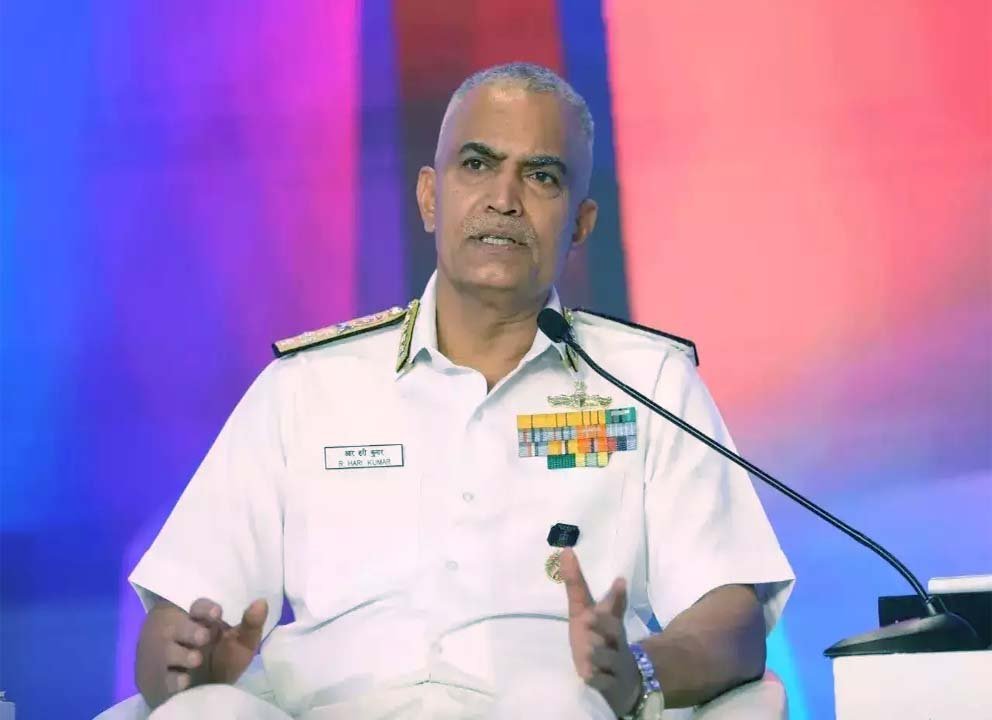
New Delhi: Describing the security situation in the South China Sea as “fragile”, navy chief Admiral R Hari Kumar said that violations of established rules pose a danger to good order at sea. Speaking at the Indo-Pacific Regional dialogue organised by the navy, he warned that the region is the most militarised in the world and a “contestation” at sea can have adverse economic and social consequences.
The comments were a rare direct reference to the situation in the South China sea and come at a time when China and Pakistan are undertaking large-scale naval drills in the Arabian Sea.
“The fragile security situation in the South China Sea, in addition to the happenings of violations of established codes of conduct or confidence building measures, pose a clear and present danger to good order and discipline at sea,” Admiral Kumar said.
He said that more than 50 warships of extra regional forces are deployed in the Indian Ocean Region on various missions, including anti-piracy patrols off the Gulf of Aden and the wider Indo-Pacific has a significant naval presence, which can lead to confrontation and contestation.
“Owing to the increased presence of multinational forces, and differing interpretations of international laws, there is this fear that the region’s ‘global commons’ can change to ‘contested seas’,” he said. The navy chief added that this contestation at sea “can have adverse consequences for security-physical, social as well as economic”.
Admiral Kumar made a case for greater collaboration between nations in the maritime nation. “We are traversing through a contested present into an uncertain future. The future of global commons hinges on cooperative efforts of nations,” he said.
He said that cooperative or collaborative systems amongst like-minded maritime nations are essential for a stable future. He also made a strong case for developing interoperability and trust between nations, saying this requires a sustained and continued engagement.









